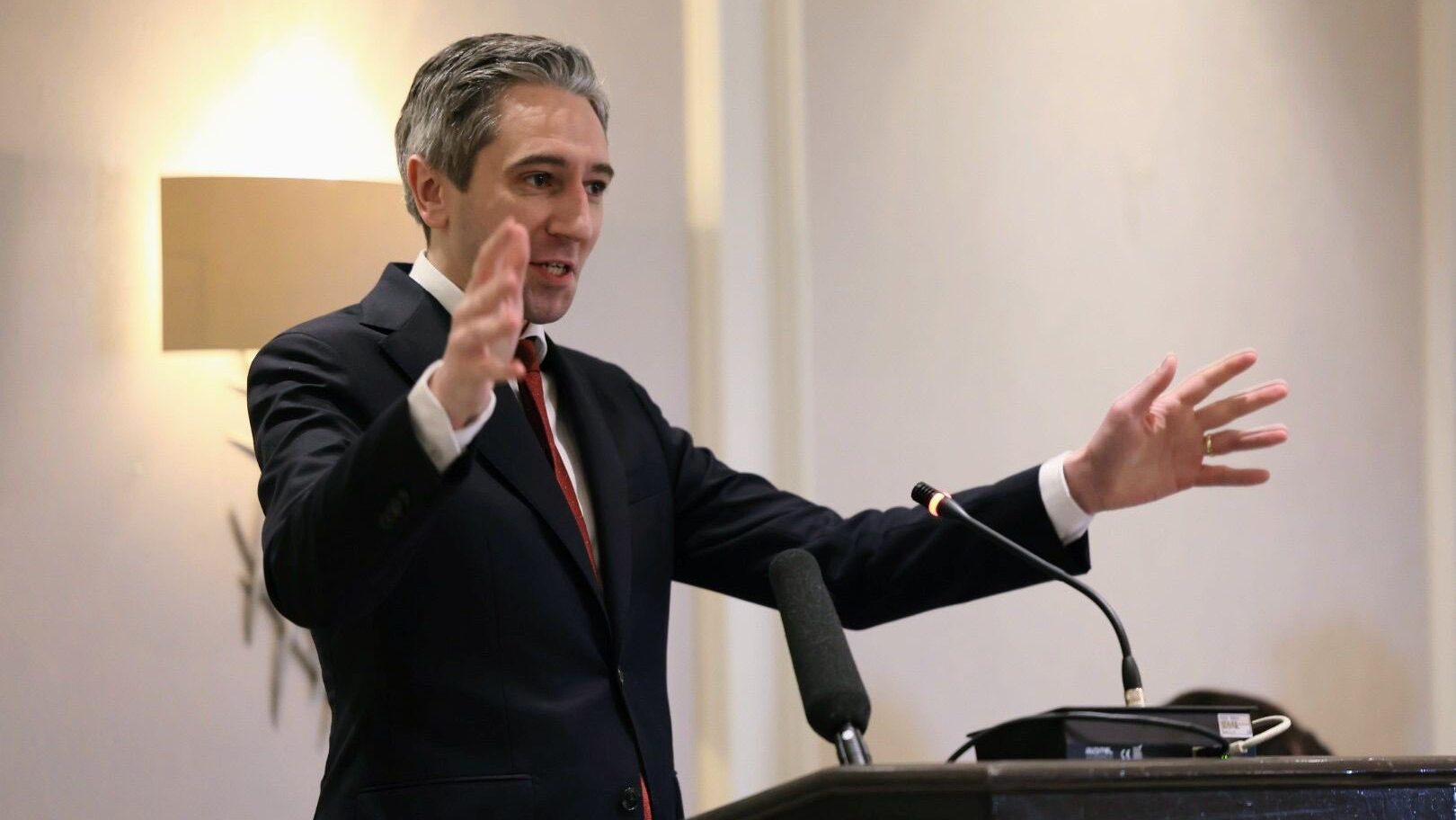
Photo: @SimonHarrisTD on X, 15 April 2024.
An unusual diplomatic war of words has broken out between the Irish and British governments in the past week over what to do with an exodus of asylum seekers from the UK, allegedly motivated by an increased risk of deportation as Rishi Sunak’s Rwanda Plan begins to get off the ground.
The spectre of Irish police running border checks with Northern Ireland reared its head as Dublin scrambled to respond to the overflow of refugees from Great Britain arriving through Belfast. Some media sources claim the Republic is underprepared for even a fraction of the UK’s estimated 1.2 million illegal immigrants, should they be incentivised to travel westward.
Initially free from the issues that have plagued Europe since the onset of the migration crisis in 2014, Ireland’s asylum system has spiralled into disaster over the past year. One recently arrived refugee indicated they had been directed to the country by NGOs in France.
A decade of poor migration management and failure to reform has prompted an unprecedented social crisis in the Republic of Ireland driven by migration. Efforts to return recent arrivals to the UK have been outright rejected by the British government, citing similar non-cooperation with France on migrant Channel crossings.
Responding in the House of Commons to the prospect of border checks with the Republic on Wednesday, Rishi Sunak claimed that any such move would be a contravention of previous international agreements.
Rishi Sunak tells the House of Commons that the UK has no legal obligations to accept asylum seekers returned from Ireland (and says the UK Govt is seeking urgent clarification that the 100 GardaÍ being redirected to frontline immigration duty are not being sent to the border) pic.twitter.com/tKaPutr1PG
— Gavan Reilly (@gavreilly) May 1, 2024
The escalating crisis poses a political risk to Ireland’s recently installed Taoiseach (Prime Minister) Simon Harris, with some in the Irish Parliament broaching the politically unlikely possibility of an all-island approach to migration management, similar to the post-Brexit arrangement whereby customs are checked at the Irish Sea rather than between the Republic and Northern Ireland.
Last week, violence flared up between riot police and locals south of Dublin following the installation of a 1,000-man asylum centre, with authorities moving to clear a growing ‘tent city’ that popped up in the administrative heart of the Irish capital, again following altercations with locals.
🇮🇪❌🇮🇪 — 📰 Gript Media (April 26, 2024 D): Gardaí advance on and pepper spray protesters opposing an IPAS centre in Newtownmountkennedy in clashes last night. Gript captured front line images.
— Alex Kennedy (@therealmindman) April 29, 2024
🔗 gript (@griptmedia) pic.twitter.com/rnKvHRDWBh
The British government has commenced a roundup of the first of an expected 5,700 illegal migrants this week, to be deported to Rwanda from July onwards. This flagship Tory policy was repeatedly harassed by lawfare and the efforts of the ECHR in Strasbourg, with more of the same expected.
Recent nativist agitation in Ireland has taken the country’s political system by storm, with even the traditionally pro-open border Sinn Féin opposition party shifting its permissive stance on immigration when riots engulfed Dublin last November, triggered by a mass stabbing at an urban school by an Algerian migrant. There is a lack of clarity on the current number of refugees crossing the border into the Republic.
In Northern Ireland, the emergence of migration as a hot topic comes amid an existential crisis within pro-UK unionist parties and the takeover of regional government by the nationalist Sinn Féin.
Asylum seekers crossing south into the Republic are likely to sharpen the ongoing debate in the Irish Parliament regarding the controversial EU Migration Pact. One parliamentarian, Carol Nolan, has described Dublin as effectively a ‘colonial outpost of an EU regulatory empire,’ unable to manage its own affairs.
Carol Nolan TD once again calling it as it is.
— Niall O’Hara 🇮🇪 (@ThoughtsToby) May 1, 2024
pic.twitter.com/VRvAsJ9Zlr
"We are in effect a colonial outpost of an EU regulatory empire whose sole function in many regards is simply to transpose EU laws while giving the process a veneer of democratic legitimacy. No where is…
The feud evokes old wounds over the status of a so-called ‘hard border’ in Northern Ireland, both a major sticking point during Brexit negotiations and a perceived catalyst for renewed paramilitary violence. Subsequently, the region stayed within the partial purview of EU oversight, under the so-called Windsor Framework.
